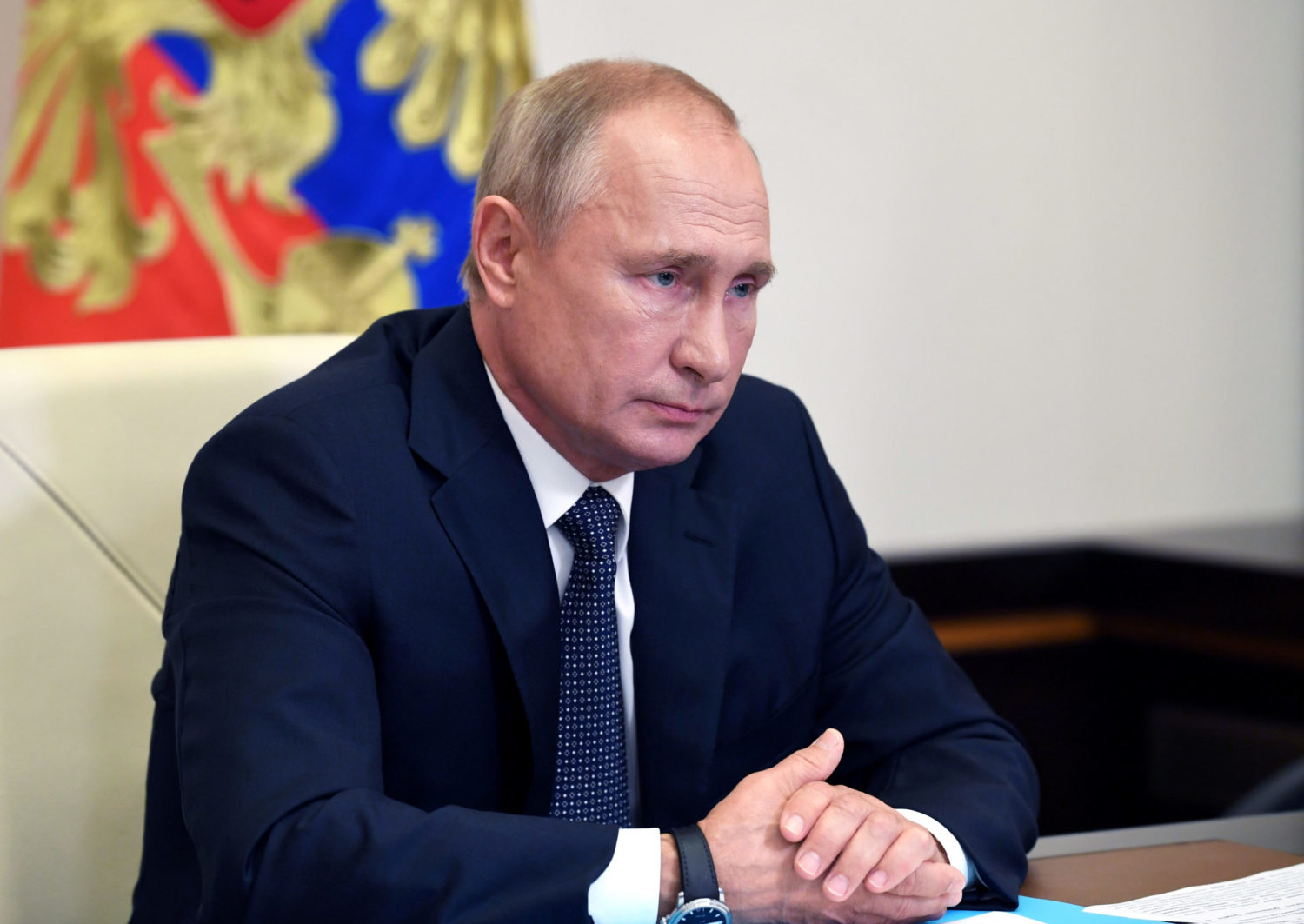
By Andrew Osborn and Madeline Chambers
MOSCOW/BERLIN (Reuters) – Russia said on Thursday the West should not rush to judge it over the poisoning of Kremlin critic Alexei Navalny and that there were no grounds to accuse it of the crime, as talk in the West of punishing Moscow intensified.
The Kremlin was speaking a day after German Chancellor Angela Merkel said Navalny had been poisoned with a Soviet-style Novichok nerve agent in an attempt to murder him and that she would consult NATO allies about how to respond.
Navalny, 44, is an outspoken opponent of Russian President Vladimir Putin and has specialized in high-impact investigations into official corruption. He was airlifted to Germany last month after collapsing on a domestic Russian flight after drinking a cup of tea that his allies said was poisoned.
Berlin’s Charite hospital, which is treating Navalny, has said he remains in a serious condition in an intensive care unit connected to an artificial lung ventilator even though some of his symptoms are receding.
Novichok is the same substance that Britain said was used against a Russian double agent and his daughter in an attack in England in 2018. The deadly group of nerve agents was developed by the Soviet military in the 1970’s and 1980’s.
Kremlin spokesman Dmitry Peskov said Moscow rejected any suggestion that Russia had been behind the attack on Navalny and warned other countries against jumping to conclusions without knowing the full facts.
“There are no grounds to accuse the Russian state. And we are not inclined to accept any accusations in this respect,” Peskov told reporters.
“Of course we would not want our partners in Germany and other European countries to hurry with their assessments.”
Sergei Naryshkin, the head of Russia’s SVR foreign intelligence agency, said Moscow could not rule out Western intelligence agencies had orchestrated the poisoning to stir up trouble, the RIA news agency reported.
Russian prosecutors have said they see no reason to launch a criminal investigation because they say they have found no sign a crime was committed, though pre-investigation checks are continuing.
Peskov said Russia was eager to know what had happened to Navalny, but couldn’t do so without receiving information from Germany about the tests that had led to Berlin’s conclusions about Novichok.
SANCTIONS PRESSURE
OPCW, the global chemical weapons agency, said the poisoning of any individual with a toxic nerve agent would be considered use of a banned chemical weapon.
The European Commission said the bloc could only slap new sanctions on Russia after an investigation revealed who was responsible for Navalny’s poisoning. Lithuania said it would ask EU leaders to discuss the poisoning at their next summit.
Merkel said that any German or European response would depend on whether Russia helped clear up the case.
After her strong statement on Wednesday, she is under pressure at home to reconsider the Nord Stream 2 pipeline, which will take gas from Russia to Germany.
“We must pursue hard politics, we must respond with the only language (Russian President Vladimir) Putin understands – that is gas sales,” Norbert Roettgen, head of Germany’s parliamentary foreign affairs committee, told German radio.
“If the Nord Stream 2 pipeline is completed now, it would be the maximum confirmation and encouragement for Putin to continue this kind of politics,” Roettgen, a member of Merkel’s conservatives, told German television separately.
Nord Stream 2 is set to double the capacity of the existing Nord Stream 1 pipeline in carrying gas directly from Russia to Germany. Led by Russian company Gazprom with Western partners, the project is more than 90% finished and due to operate from early 2021. This may complicate efforts to stop it.
It is fiercely opposed by Washington and has divided the European Union, with some countries warning it will undermine the traditional gas transit state, Ukraine, and increase the bloc’s reliance on Russia.
Peskov said the Kremlin regarded talk of trying to thwart Nord Stream 2 as being based on emotions. He said the project was a commercial one which benefited Russia, Germany and Europe.
“We don’t understand what the reason for any sanctions could be,” said Peskov.
(Additional reporting by Gabrielle Tétrault-Farber, Anton Kolodyazhnyy and Maxim Rodionov in Moscow and by Thomas Seythal and Vera Eckert in Berlin and by Gabriela Baczynska, John Chalmers, and Marine Strauss in Brussels, Andrius Sytas in Vilnius and Anthony Deutsch in Amsterdam; Editing by William Maclean)











